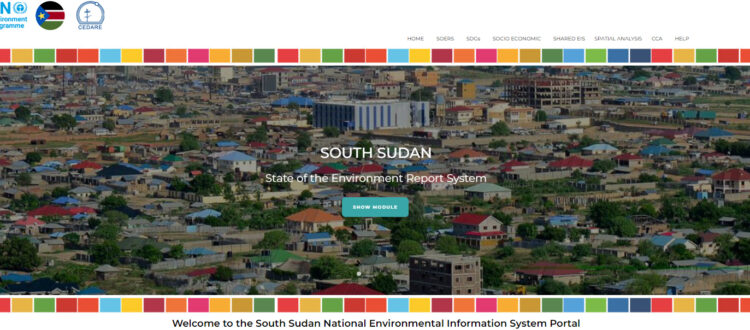Development of Environmental Knowledge and Information Management System in South Sudan
The project aims to develop an environmental knowledge and information management system to enhance data availability, exchange and use for strengthened decision-making and governance in South Sudan. It will involve facilitating an inception meeting to define the scope and focus areas for the system based on a review of the existing situation and capacities. The project will gather information on current best practices for versatile systems to inform the design. It will identify the core national data producers and their mandates related to environmental SDGs, Rio Convention reporting and indicators. The project will formulate an appropriate legislative framework to underpin the information system and facilitate access to environmental data. A 5-module web-based system will be designed with interactive sections for statistics, indicators, reporting, spatial information, and data sharing. Training programs will be developed and delivered to build capacities of national experts and institutions on managing and utilizing the knowledge platform. The project will also review existing environmental legislation and provide support to validate and finalize draft bills and regulations related to the environment and forestry sectors. It will facilitate multi-stakeholder consultations and engagement with legal authorities to finalize the drafting and enable the enactment of the legislations. The activities aim to improve the compliance capacities and systematic coordination between government agencies for implementing, monitoring, and reporting on Rio Convention commitments and other MEAs in South Sudan. It will promote knowledge-driven planning and evidence-based decision-making on environmental sustainability.
Partners
South Sudan, and UNEP ROA
Region / Country
South Sudan
Objectives
- Technical facilitation of an inception meeting with national experts to review the situation analysis report and define the scope and areas of focus for the environmental information system (EIS). Gathering data, information on the current best practices and key elements of versatile knowledge and information management system that suits the country situation of South Sudan,
- Identifying major core data producers for environmental SDGs and Rio Convention related reporting that would constitute the core members of the EIS network, and the core set of environmental indicators to be maintained in the repository of these institutions,
- Review and draft an appropriate legislative framework (including a draft agreement/ MoU on data collection, curation and sharing/ management between environmental sector agencies and ministries) to underpin the information system and access to environmental information, including the Rio Convention related information,
- Design a web-based system with five modules to form the backbone of the information management system, namely: Environmental statistics and reporting system; Environmental indicators system; State of the Environment report system; Spatial Information System; and Shared environmental information system Shared environmental information system.
- Support the South Sudan Ministry of Environment and Forestry (MoEF) to deploy and operationalize the web-based system at the national and sub-national levels.
- Develop an online EIS training module and undertake training for the national experts and institutions on how to use and manage the environmental knowledge and information management system.
- Support the review and validation of the draft legislation.
Timeline
From – To 2021 – 2022
Outcomes
- Report on institutional capacities and data exchange framework,
- Review of best practices for information management systems,
- List of core data producers and indicators,
- Draft legislative framework,
- 5-module web-based system,
- Training on using and managing the system.
Publications/website/portal
South Sudan National Environmental Information System Portal
https://cedarekmp.net/southsudan/
Relevance to SDGs
The outcomes would support SDG 17 (Partnerships for the Goals) by enhancing data sharing and stakeholder collaboration on the environment. The improved monitoring and reporting strengthen SDG implementation and progress tracking under several SDGs, especially SDGs 13 (Climate Action), 14 (Life Below Water), and 15 (Life on Land). Capacity building contributes to SDG 4 (Quality Education).

